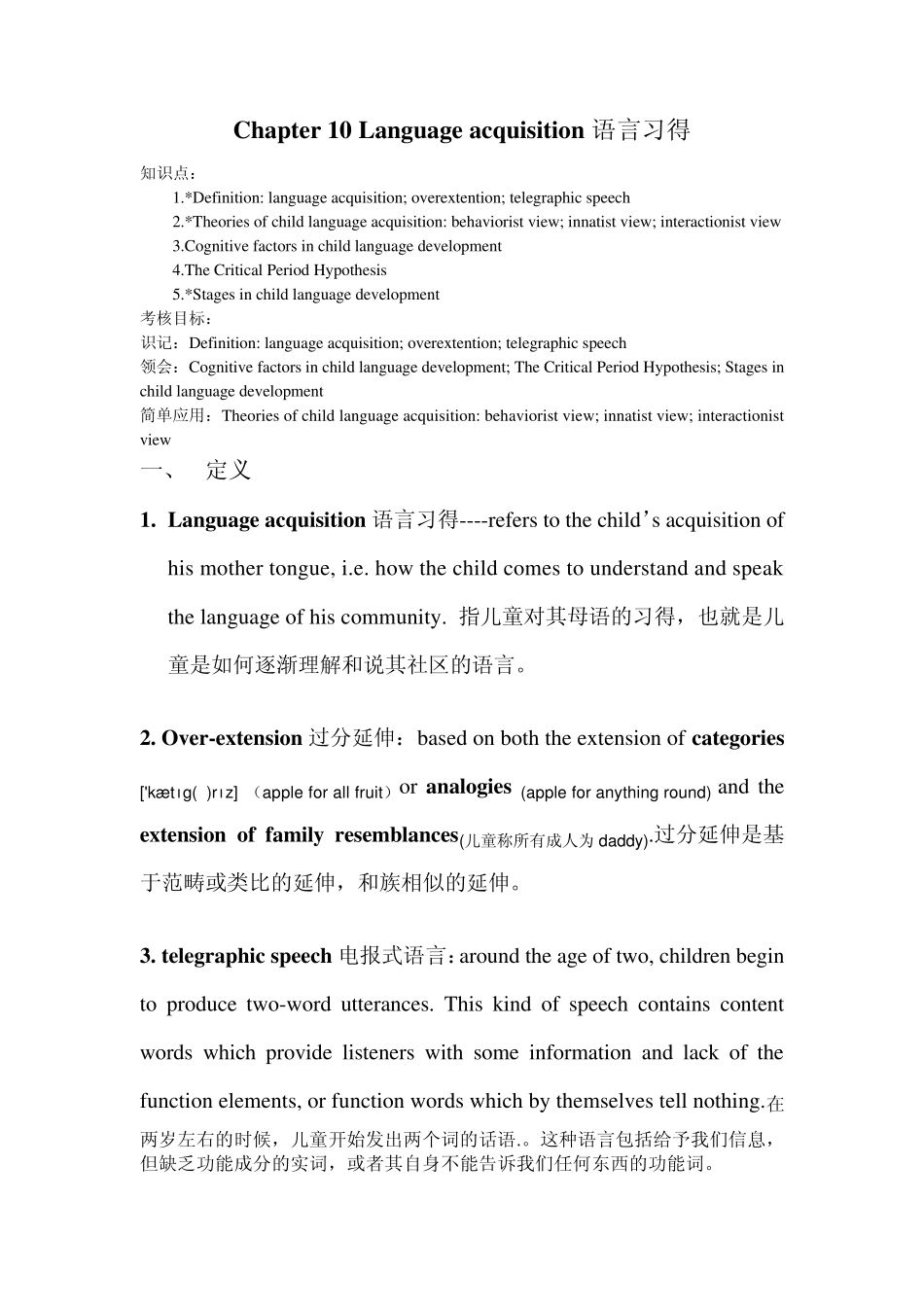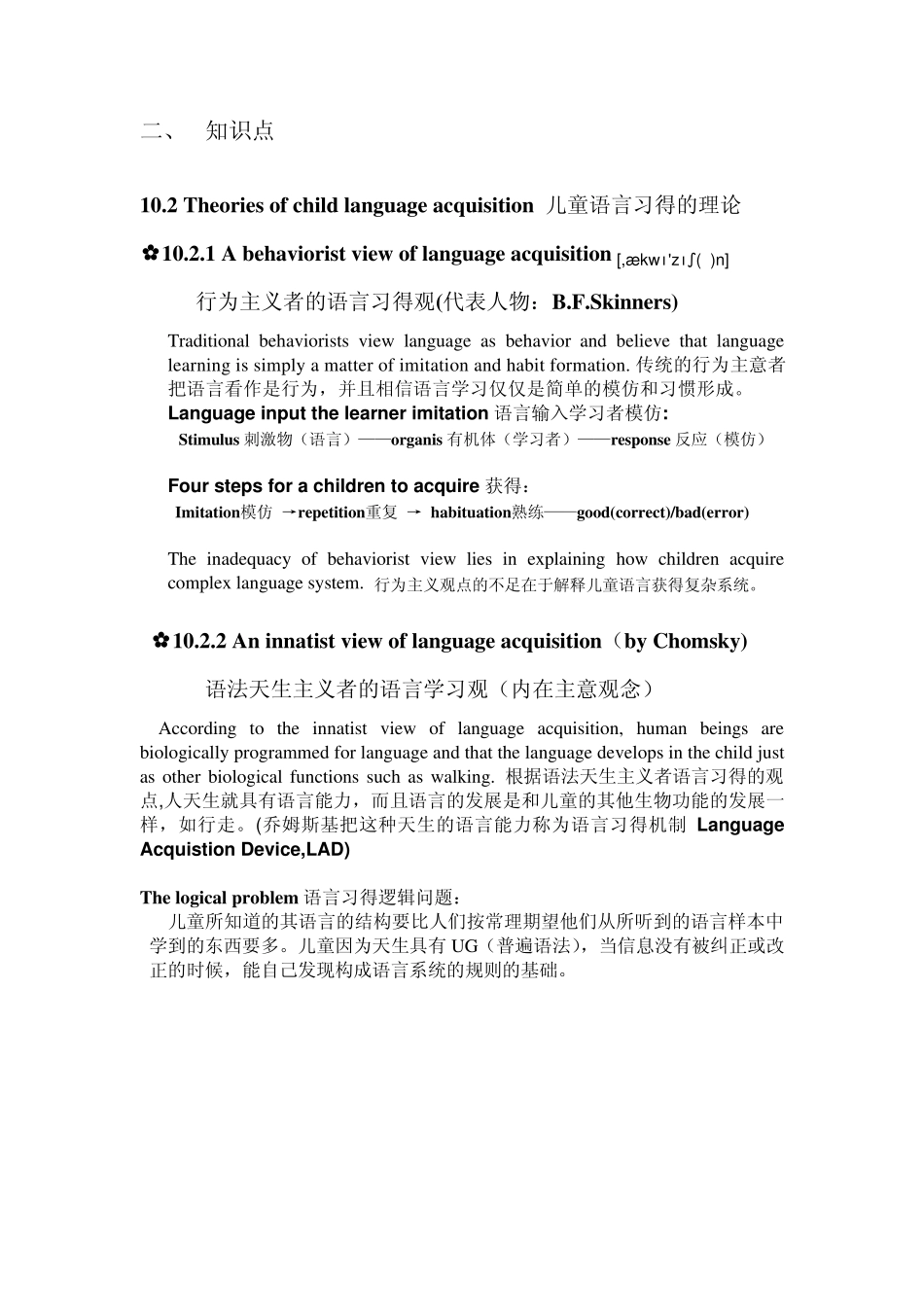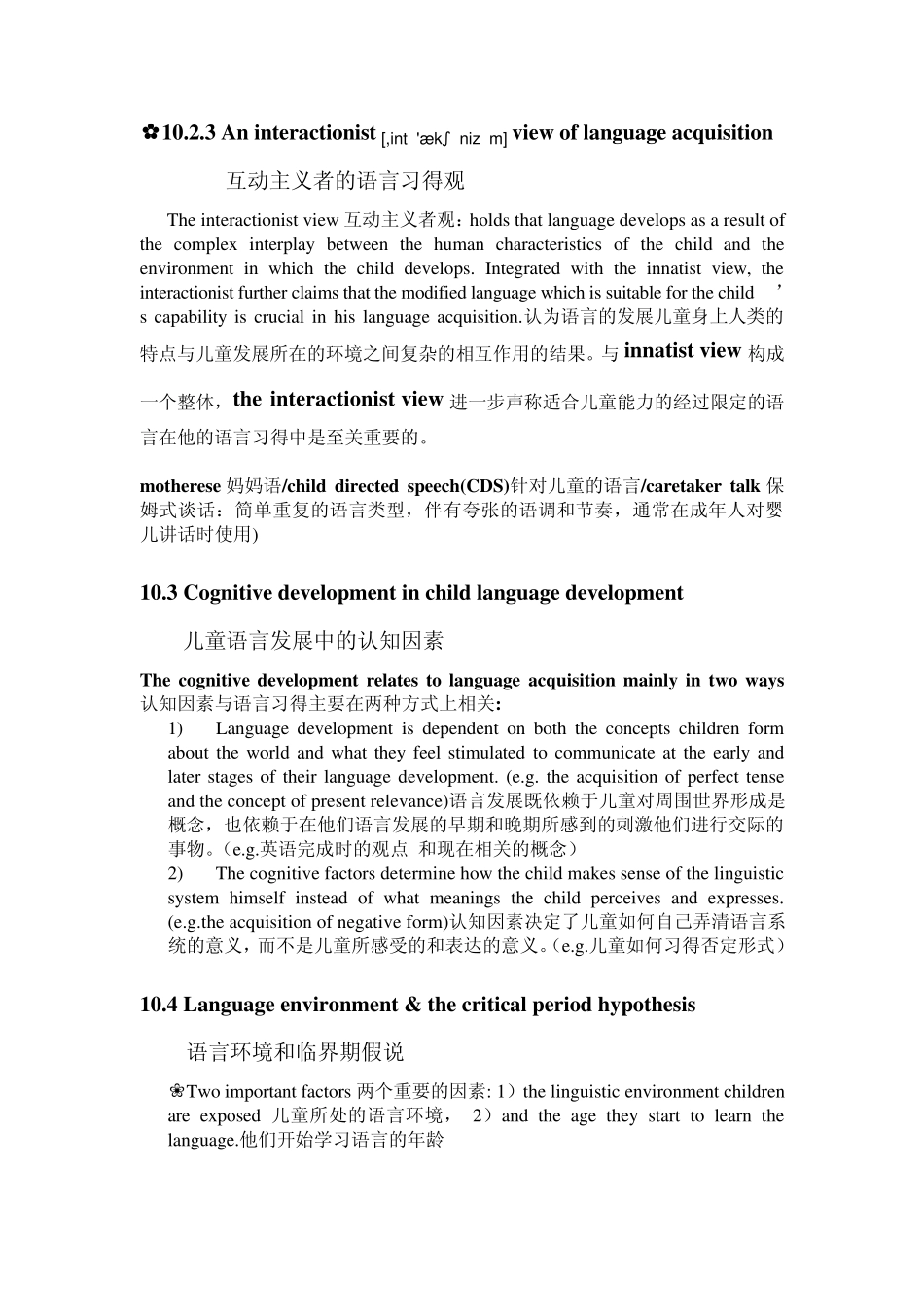Chapter 10 Language acquisition 语言习得 知识点: 1.*Definition: language acquisition; overextention; telegraphic speech 2.*Theories of child language acquisition: behaviorist view; innatist view; interactionist view 3.Cognitive factors in child language development 4.The Critical Period Hypothesis 5.*Stages in child language development 考核目标: 识记:Definition: language acquisition; overextention; telegraphic speech 领会:Cognitive factors in child language development; The Critical Period Hypothesis; Stages in child language development 简单应用:Theories of child language acquisition: behaviorist view; innatist view; interactionist view 一、 定义 1. Language acquisition 语言习得----refers to the child’s acquisition of his mother tongue, i.e. how the child comes to understand and speak the language of his community. 指儿童对其母语的习得,也就是儿童是如何逐渐理解和说其社区的语言。 2. Over-extension 过分延伸:based on both the extension of categories ['kæ tɪg(ə)rɪz] (apple for all fruit)or analogies (apple for anything round) and the extension of family resemblances(儿童称所有成人为 daddy).过分延伸是基于范畴或类比的延伸,和族相似的延伸。 3. telegraphic speech 电报式语言:around the age of two, children begin to produce two-word utterances. This kind of speech contains content words which provide listeners with some information and lack of the function elements, or function words which by themselves tell nothing.在两岁左右的时候,儿童开始发出两个词的话语.。这种语言包括给予我们信息,但缺乏功能成分的实词,或者其自身不能告诉我们任何东西的功能词。 二、 知识点 10.2 Theories of child language acquisition 儿童语言习得的理论 ✿10.2.1 A behaviorist view of language acquisition [,æ kwɪ'zɪʃ(ə)n] 行为主义者的语言习得观(代表人物:B.F.Skinners) Traditional behaviorists view l...


